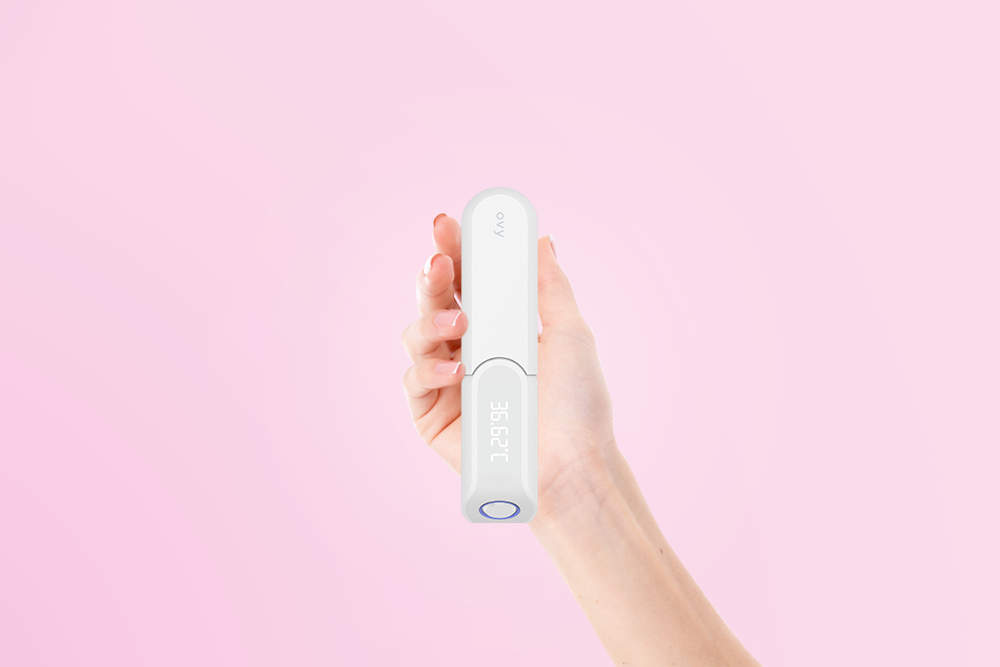Key Takeaways
- The female cycle doesn't work like clockwork. Fluctuations are perfectly normal.
- A period that arrives later than usual is therefore not initially a cause for concern.
- We explain what "overdue" actually means and when you are overdue.
The period is an essential part of the female reproductive system and a sign of a woman’s* hormonal health. Even if you have a relatively regular cycle, occasional deviations can occur, leading to a late period. But when is a period actually considered overdue, and when is it advisable to take a pregnancy test?
What does it mean to be overdue?
A late period occurs when the expected menstrual bleeding does not begin within the usual timeframe. A typical menstrual cycle lasts between 24 and 38 days. The length of the cycle can vary from woman* to woman* and from cycle to cycle. Therefore, it is not so easy to define exactly when you are truly overdue.
The length of a cycle depends on when ovulation has taken place. While the first half of the cycle—from the first day of menstruation until ovulation—can vary in length, the second half is fixed at about 14 days. This means that once ovulation has occurred, your period will come around 14 days later, or at the latest after 18 days.
How long is it normal to be overdue?
Various factors such as stress, physical strain, hormonal fluctuations, weight changes, travel, and medications can contribute to delayed ovulation and thus a delayed period. Teenagers, breastfeeding women*, or those approaching menopause are especially likely to experience irregular cycles.
If you do not closely track your cycle and do not know when you ovulated, a period delayed by several days is not necessarily a cause for concern. A fluctuation of 7–9 days in cycle length is considered normal.
Am I pregnant or just late?
If you were able to identify your ovulation, for example by using the symptothermal method, and no bleeding has occurred 18 days later, the likelihood of pregnancy is high.
Early signs of pregnancy can include nausea, breast tenderness, fatigue, and frequent urination. However, these signs may also point to other conditions. Taking a pregnancy test is the best way to find out. These tests detect the pregnancy hormone hCG in urine or blood. So-called early detection tests can detect hCG in urine up to five days before the expected period.
When should I see a doctor?
In most cases, a late period is not a cause for concern and may be due to temporary factors. However, there are certain situations in which medical advice should be sought, such as severe pain, unusual bleeding, prolonged delays, or other accompanying symptoms. If you have ongoing concerns or irregularities, it is advisable to see a doctor for a precise diagnosis and to rule out or treat possible health issues.
Menstruation is a complex aspect of the female body that is influenced by numerous factors. A late period should not automatically cause worry; instead, it should be seen as a possible reaction of the body to various influences. Nevertheless, it is important to listen to your body, seek medical advice if in doubt, and always pay attention to your overall health.
Medically Reviewed
This text was created by medical editors on the basis of specialist medical literature and current studies. Our aim is to work scientifically, identify sources and regularly check that the content is up to date.
References & Literature
- Amboss (2020): Menstrual cycle and cycle abnormalities.
- Bae, J. et al. (2018): Factors associated with menstrual cycle irregularity and menopause.
- Mihm, M., Gangooly, S., & Muttukrishna, S. (2011). The normal menstrual cycle in women. Animal reproduction science, 124(3-4), 229-236.
- Welt, C. (2021): Patient education: Absent or irregular periods (Beyond the Basics.)





